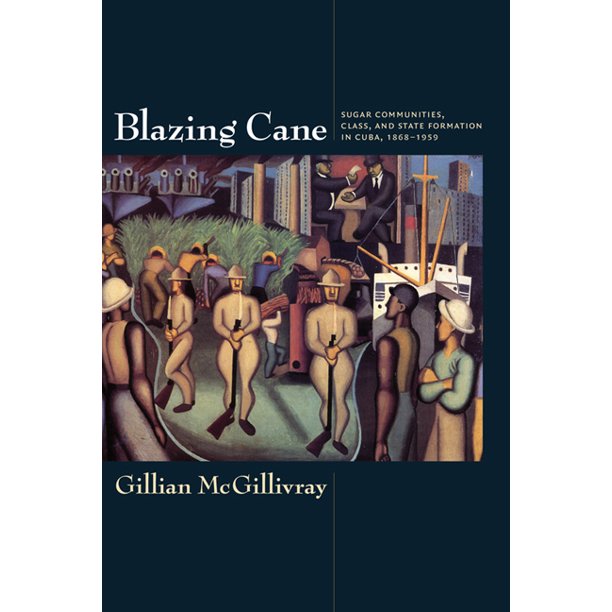Glendon associate professor of history Gillian A. McGillivray delves into Latin America’s past through the lens of sugar. The result is her book Blazing Cane: Sugar Communities, Class, and State Formation in Cuba, 1868-1959.
Gillian McGillivray became fascinated by Latin American culture in high school after reading a novel by Gabriel García Márquez, the Nobel Prize-winning Colombian writer. After earning her master’s in Latin American studies and PhD in history at Georgetown University, McGillivray, an associate professor of history at Glendon, began delving into Latin America’s past through the lens of sugar.
Her first book, Blazing Cane: Sugar Communities, Class, and State Formation in Cuba, 1868-1959 (Duke, 2009), considered the origins of the industry, slavery and colonialism and discussed how and why sugar workers contributed to the revolution that brought Fidel Castro to power in 1959. Now, McGillivray has turned her gaze toward Brazil and the insights to be gleaned about politics and culture through sugar. She hopes to publish Sugar and Power in Brazil in 2023.

“I did my postdoctoral studies on the sugar zones in Mexico and Brazil and realized that Brazil was so complex that I needed to focus on it as its own project,” McGillivray says. “It was a challenge to move from studying Spanish-speaking Latin America to Portuguese-speaking Latin America.”
Her current research seeks to answer two larger questions: why São Paulo became one of the most successful economic zones in Latin America and how politicians and elites – not just in São Paulo, but throughout Brazil – kept the rural masses from organizing a successful revolutionary movement to combat the nation’s extreme socio-economic inequalities.
“Sugarcane, which planters have cultivated on different scales in pretty much every state of Brazil, has played a central role in the nation’s past and present,” says McGillivray. “Using sugar as a prism into Brazilian society, I argue that the Brazilian state’s support for industry and agriculture allowed elites in all of Brazil’s sugar zones to divide, co-opt, and coerce the vast number of residents who lived in the countryside.”
To prove this, she explores the changing relationships of three social classes – sugar workers, cane farmers, and refiner-industrialists – in three regions of Brazil – Rio de Janeiro, São Paulo, and the Northeast – from the end of slavery and empire in the 1880s to the beginning of dictatorship in the 1960s. McGillivray aims to explain how “policy-makers, landowners and industrialists managed to keep the millions of rural residents engaged in sugar production from becoming revolutionary actors capable of altering the political economy in their favor, in contrast to their counterparts in other places like Cuba and Mexico.”
McGillivray is participating in two additional projects alongside Sugar and Power. She is serving as a co-editor of the Entangled Histories of Brazil and the United States, a volume of academic essays by Brazilian and North American scholars that is slated for publication in January 2023.
“It grew out of a symposium in Brazil and we are happy to be publishing in both languages,” she says. “It’s important to share ideas across borders and that often involves translation. It’s nice to be based at Glendon, because we have a reputation for languages.”
Her second project involves a chapter comparing Cuba and Brazil for an edited volume based on the June 2023 “Plantation Knowledge” workshop at Cologne’s “Global South Centre.” Fifteen scholars from Europe and the Americas workshopped papers ranging from a geographer’s reflections on “the Plantationocene” to tea plantations in India, coconuts in the Philippines and cocoa in Africa.
What’s next on McGillivray’s agenda? After her book about Brazilian sugar, she’d like to collaborate on a public history project bringing together stories of sugar production and consumption in the American hemisphere with other historians and digital humanities specialists.

